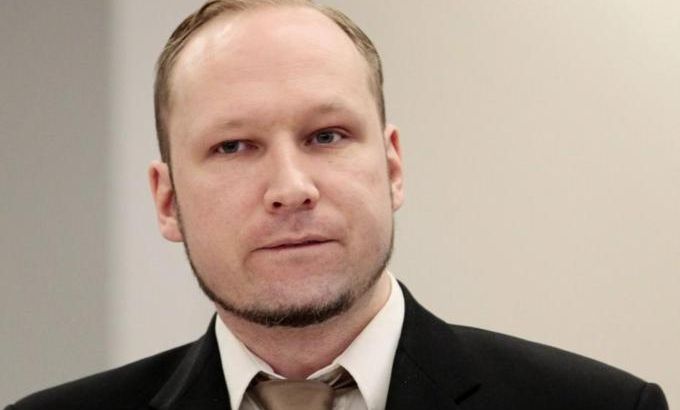Breivik glorifies Norway mass killings
Defendant tells court on the second day of his trial he acted out of “goodness, not evil” in attacks that killed 77.

The man who has admitted the mass killings of 77 people in Norway last year has told a court he acted out of “goodness, not evil” in order to “defend his country”, and would do the same again.
Anders Behring Breivik began testifying on Tuesday on the second day of his trial by calling the July 2011 attacks in Oslo and at a youth camp on the island of Utoeya as “the most sophisticated and spectacular political attack committed in Europe since the Second World War”.
Dressed in a dark suit, Breivik once again appeared to make a far-right salute as his handcuffs were removed inside the courtroom.
Breivik said he was inspired by al-Qaeda, as the second day of his trial ended. Prosecution question will now resume on Wednesday morning in the trial, which is expected to last for 10 weeks.
Breivik’s testimony and cross-examination are not being broadcast live, as earlier court proceedings had been, amid concerns that the defendant could use the trial as a platform for far-right views expounded in a more-than 1,500-page document published online prior to the attack.
In that self-styled manifesto, Breivik described a trial as offering “a stage to the world”.
“These acts are based on goodness, not evil,” he said on Tuesday, arguing that he had acted to defend his country against multiculturalism. “They (Norwegians) risk being a minority in their own capital in their own country in the future.”
Asked if he would carry out the attacks again, Breivik said: “Yes, I would have done it again, because offences against my people … are many times as bad.”
Breivik compared Norway’s Labor Party youth wing to the Hitler Youth and called their annual summer gathering an “indoctrination” camp.
He claimed it was “critically important” that he be given a chance to explain his motives for the killings, but Judge Wenche Elisabeth Arntzen repeatedly interrupted his testimony and urged him to keep his statement short.
“You could see from the faces of the relatives of the victims real pain and anguish while they listened to him,” said Al Jazeera’s Jonah Hull, reporting from the courthouse.
Court delay
Proceedings were briefly adjourned earlier as one of the judges in the Oslo trial was dismissed from the case after it emerged he had posted a comment online at the time of the attacks suggesting the perpetrator should face the death penalty.
Lay judge Thomas Indreboe, one of five appointed to rule in the trial, had posted to his Facebook page that the death penalty would be the “only just outcome” in the case. Norway does not have the death penalty.
Lawyers on all sides had requested that Indreboe be taken off the trial.
Breivik is being tried by a panel of two professional judges and three lay judges, who are local politicians appointed for four-year terms and participating on an equal basis in deciding guilt and sentencing.
The system is designed to let ordinary people have a role in the Norwegian justice system, though the lead judge still runs the trial.
Breivik is accused over the deaths in July 2011 of eight people in a car bombing in Oslo and 69 others on the island of Utoeya – mainly youths attending a summer camp organised by the governing Labour Party – who he said he targeted because he opposed multiculturalism promoted by the party.
The trial is expected to focus on whether or not Breivik is criminally sane and therefore accountable for his actions.
A first court-ordered psychiatric exam found him insane, while a second opinion came to the opposite conclusion.
If the court decides he is criminally insane, he will be committed to psychiatric care; if he is judged to be mentally stable, he could be sentenced to 21 years in prison, which could subsequently be extended if he was still deemed to pose a threat.